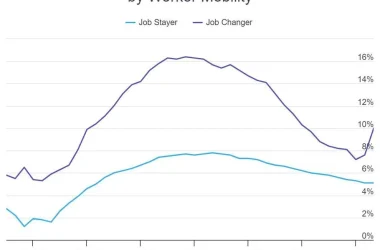By Lexi Browning
WV Press Association
CHARLESTON, W.Va. — Throughout the ongoing coronavirus pandemic, manufacturers in West Virginia have stepped up to help prevent the spread of the deadly pandemic in their facilities.
Deemed an essential service during Governor Jim Justice’s Stay-at-Home order issued March 24, manufacturers were permitted to remain open during the pandemic.

In the Mountain State, the manufacturing industry has a broad reach. Nearly 48,000 workers are directly employed by manufacturers in West Virginia, which can create another 200,000 jobs indirectly, said Rebecca McPhail, president of the West Virginia Manufacturers Association.

As a whole, the state’s industry is composed of a diverse and “robust” collection of makers, involving steel, chemical, automotive, pharmaceutical woodworking and more, McPhail said.
Adaptation is something that comes with the territory of manufacturing, and in order to move forward, workers must be innovative. McPhail said some chemical manufacturers did just that by turning their efforts toward producing hand sanitizer for in-house and external distribution to the local medical community.
Some items that had previously been used as shared equipment, such as shields or helmets, were incorporated into the machinery itself to prevent contact, McPhail said. Others elected to modify high-touch surfaces.
McPhail said the recent additions to plants can be compared to the plexiglass seen in retail environments.
“Some of our plants did this — which I found really impressive — they removed all doors that required a handle and replaced them with two-way doors and push plates so you come in and elbow into the door to exit or enter versus having to grab the doorknob,” McPhail said. “(It’s about ) … adaptation of the assembly lines and the plants themselves to minimize contact and potential exposure.

Due to the nature of the jobs, many manufacturers already required personal protective equipment. That helped as companies began to adopt new protocols during the pandemic to help prevent the spread of coronavirus.
Manufacturers, McPhail said, are the “poster child” for PPE.
“People think of an assembly line, with people shoulder to shoulder, and that really doesn’t reflect what manufacturing looks like any longer,” McPhail said. “Automation that’s been integrated in the process does eliminate that cramped environment, so while this [pandemic] has not been a great experience, we’re probably as well prepared as any industry to continue to operate in a safe and efficient manner during the COVID-19 crisis.”
The industry’s commitment to continuous improvement has assisted companies in finding solutions to problems presented by the unprecedented pandemic, she added.
“I think there’s a lot of lessons that have been learned from the manufacturers for the rest of the business economy as we move through the COVID-19 crisis,” McPhail said.
In response to the coronavirus outbreak, Toyota North America, which spans 13 locations, including Toyota Motor Manufacturing West Virginia in Buffalo, W.Va., elected to idle production for seven weeks.
During that time, Barry Pearson, group manager of Administration and Quality at Toyota North America, said the company used the opportunity to do deep cleans of the facilities and create a thorough, 64-page “playbook” for keeping employees safe as they returned to work.
“We used that time to really get our arms around what creating a safe work environment was going to look like,” Pearson said, noting decreased consumer demand gave the automotive industry a chance to strategize. “Everything stopped. No one was selling vehicles, no one was buying vehicles, and basically car lots were flooded with inventory, and there was nowhere to move inventory.”
As production idled, TMMWV turned its focus to help the community, donating its N95 face masks and other PPE to Thomas Health Systems, Jackson General Hospital and Pleasant Valley Hospital, Pearson said. Then, the team found innovative uses for equipment on-site.
“We had an engineering team that was able to quickly pull together some designs and manufacturing with a 3D printer we have here — masks and face shields,” Pearson said. “We were able to 3D print some masks for first responder use, and we went through a lot of testing to get them approved.”
The company also donated $25,000 to both United Way of Central West Virginia and Philanthropy West Virginia to assist with COVID-19 relief and support efforts.
Adhering to guidelines set by the Centers for Disease Control and Prevention and the Occupational Safety and health Administration, as well as state and local guidelines, the company removed doors where necessary, installed barriers and set up temperature checks at each entrance.
Masks were also required on the floor, and additional break rooms were opened to help keep employees six feet apart, Pearson said.
“On the shop floor, as you can imagine in an assembly plant, there are times where folks are pretty close in proximity, so any time we can’t keep folks six feet apart, we require a face shield and a mask,” Pearson said. “We also — four times per shift — stop and do a cleaning of the lines to clean common tools or common areas where folks may be touching, and we do that for five minutes.”
Though still operating in the second phase of reopening with reduced vehicle production, Pearson said the plant’s sales have exceeded their forecast.
“If you look at the sales results through July, we’re back to 84 percent of sales of where we were a year ago, and that has blown most of us away,” Pearson said. “Initially, when we went into that seven-week period, we began doing some forecasting, and I think our return was much slower; much more gradual… If you think about it, that’s really two months from when we returned to work [in May]. We’re very grateful for that.”
Pearson said the most challenging aspect of the pandemic was worrying about his fellow team members.
“There’s a lot of great people who come through these doors every day,” he said. “Just making sure that we were doing everything we can to keep them and their families safe, provide a work environment they were confident in and making sure that they understood that their health and safety were the priorities; production was secondary.”
Ultimately, Pearson said he attributes the plant’s success to its hard-working people.
“The reason we’re here and we’re producing and are able to react and be flexible the way we are is because we have, by far, the most talented team members that I could ever ask to be around; they’re really great people,” Pearson said. “That allows us to make quick decisions … and respond to increasing volume demands in a really challenging time. I just have to say thank you; my hat’s off to the team members who work here every day.”
McPhail echoed Pearson’s sentiment, noting the strong work ethic of West Virginians as well as the state’s commitment to recognizing the importance of manufacturing careers.
“We really think West Virginia is on the edge of a manufacturing explosion,” McPhail said. “Our workforce is built for manufacturing, the state has adopted policies that encourage our West Virginians to be educated and trained in what are becoming high demand manufacturing careers.”
McPhail said the ongoing pandemic has illuminated gaps in the nation’s economy that could be remedied through manufacturing.
“Whether it’s from the petrochemical and chemical manufacturing potential that exists because of the shale resources that we have here, or if it’s the recognition that the United States needs a more robust and complete manufacturing economy because of the supply issues we’ve experienced related to COVID-19, the industry is really on the move, and West Virginia can truly be a beneficiary of that,” McPhail said.
For the rural portions of the state, manufacturing has helped stabilize many jobs indirectly attributed to the industry, such as contractors, accountants, attorneys, engineering firms, consultants, retail, food and service providers, McPhail said.
“We all benefit from manufacturers because we’re using something someone somewhere produced,” McPhail said.
From a distribution and market perspective, McPhail said West Virginia is “ideally situated” because of its strong workforce and proximity to major metropolitan hubs.
“It’s a combination of our people and our place,” McPhail said. “I think that’s what’s going to help motivate additional manufacturing investments.”




